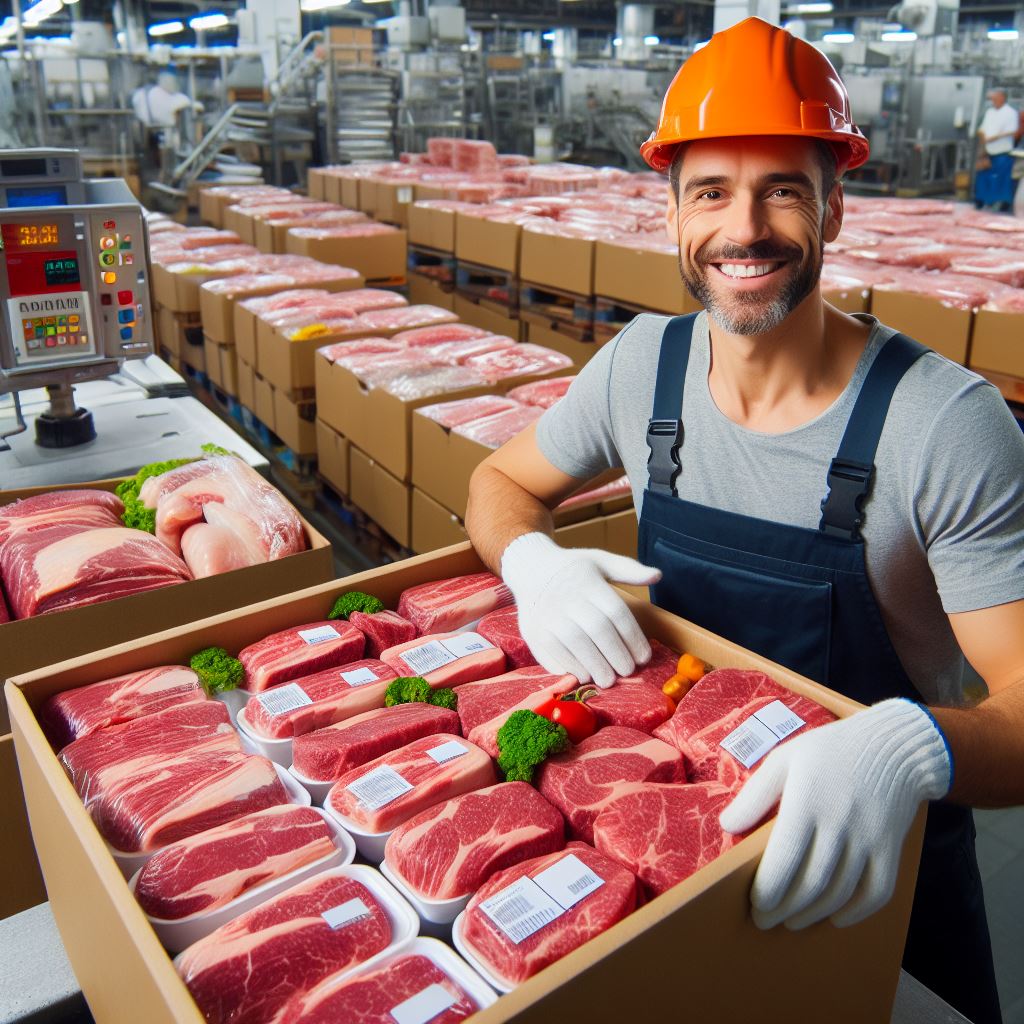Brazil in Crisis: How Drought and Wildfires Are Threatening Global Agricultural Commodity Supplies in 2024
Brazil is a global powerhouse in the agricultural sector, leading the world in exports of soybeans, corn, beef, and chicken. However, in 2024, the combination of severe droughts and uncontrolled wildfires has reached alarming levels, directly threatening agricultural production and the supply of these commodities to the international market. The impact of these extreme weather conditions has caused drastic reductions in crop yields and increased production costs, while also creating tensions in global markets. This article explores the current drought and wildfire situation in Brazil, their effects on key agricultural commodities, and what it means for the global market.
Contents
Drought in 2024: Impact on grain production
In 2024, Brazil faced one of the worst droughts in recent history, affecting key agricultural areas, particularly in the Midwest and southern regions of the country. The prolonged drought has severely impacted essential crops like soybeans, corn, and coffee. Data from the National Supply Company (Conab) indicate that the soybean harvest, which traditionally exceeds 150 million tons, is expected to drop by around 12% in 2024 due to the lack of rainfall in strategic regions such as Mato Grosso and Paraná, which account for more than 50% of national production.
Difficulties in maintaining adequate irrigation levels and soil degradation have already led to significant losses. Corn production, Brazil’s second-largest agricultural commodity, has also been hit hard. It is estimated that, in 2024, corn production will decrease by around 10% compared to the previous year. These reductions not only put pressure on domestic prices but also directly affect global markets, as Brazil is one of the largest exporters of these crops.
The drought has also compromised coffee production, an important commodity for Brazil, which is the largest exporter in the world. The Brazilian Coffee Association has already estimated a 15% reduction in the 2024 harvest, which is expected to impact global stocks and drive up international prices.
Wildfires in 2024: Destruction of biomes and farmland
In addition to the drought, Brazil has been plagued by a growing number of wildfires. According to the National Institute for Space Research (INPE), in 2024, Brazil recorded a 25% increase in the number of fire outbreaks compared to the previous year, especially in the Amazon, Cerrado, and Pantanal regions. The fires have destroyed vast areas of pasture, crops, and critical biomes for biodiversity and sustainable agriculture.
These wildfires, often driven by illegal deforestation, not only destroy cropland but also release massive amounts of carbon dioxide, exacerbating the climate crisis. In the Cerrado, one of the hardest-hit regions, about 30% of soybean croplands were either destroyed or damaged by fire in 2024, according to data from the Brazilian Institute of Geography and Statistics (IBGE).
In addition to directly affecting agriculture, the fires are also harming livestock production. The destruction of pastures in the Amazon and Cerrado has reduced the capacity for cattle farming, driving up beef production costs. Since Brazil is the largest global exporter of beef, this scenario has raised concerns in international markets, particularly in countries like China and the United States, which rely heavily on Brazilian exports.
Impact on the international commodities market
The 2024 climate crisis in Brazil is already having significant effects on the international market. The reduction in soybean and corn yields, for example, has driven up the prices of these commodities by as much as 20% in global markets, according to the FAO Global Food Price Index. This directly affects the global supply chain, especially in Asia and Europe, which depend on Brazil for animal feed and biofuel production.
China, Brazil’s largest trading partner, has expressed concerns over the decrease in soybean supply, a crucial input for food production and pork farming. In 2024, soybean exports to China are expected to fall by around 15%, which will likely increase pressure on other suppliers, such as the United States and Argentina.
In the beef sector, the reduction in production capacity due to drought and wildfires has resulted in an 18% increase in international beef prices. Importers in Asia, the Middle East, and Europe are already seeking new suppliers or alternatives to offset the shortage.
Additionally, the global coffee industry is feeling the effects of the climate crisis in Brazil. With the reduction in the coffee harvest, prices for the product rose by 12% in the first half of 2024, directly impacting markets such as the United States, Germany, and Japan, which are major consumers of Brazilian coffee.
Mitigation and adaptation measures
Faced with this challenging scenario, the Brazilian government and the agricultural sector are seeking alternatives to mitigate the effects of drought and wildfires. More efficient irrigation technologies and sustainable water management are some of the initiatives being implemented. However, the adoption of these practices is still limited in remote regions, where a lack of infrastructure and resources prevents an effective response to the crisis.
In terms of wildfires, satellite monitoring and enforcement operations have been intensified, but illegal deforestation and related fires remain a massive challenge. To address this issue, it is crucial to strengthen environmental legislation and increase international pressure for Brazil to adopt stricter preservation policies.
In the long term, adapting to climate change requires investment in research to develop more drought-resistant crop varieties and regenerative agricultural practices that maintain productivity without degrading the environment.
Drought and wildfires in 2024 pose a significant threat to Brazil’s position as one of the leading suppliers of agricultural commodities to the international market. The climate crisis, if not addressed with more robust and sustainable measures, could compromise the production of soybeans, corn, coffee, beef, and other essential products, directly affecting global supply chains and driving up international prices. To maintain its leadership in the agricultural market, Brazil must balance intensive production with environmental preservation and adapt to the new climate realities.
References
- National Supply Company (Conab). “2024 Harvest Report.” Accessed in September 2024.
- National Institute for Space Research (INPE). “Wildfire Monitoring in Brazil – 2024.” Accessed in September 2024.
- Brazilian Institute of Geography and Statistics (IBGE). “Impact of Wildfires and Drought on Agricultural Production in 2024.” Published in September 2024.
- Food and Agriculture Organization (FAO). “Global Food Price Index.” Accessed in September 2024
Related
Related Post

Meat Exporters and Suppliers List in Brazil
If you are a beef, chicken, or pork meat importer or a food import trading [...]
AGRICULTURAL COMMODITES IN BRAZIL (pandemic 2020)
AGRICULTURAL COMMODITIES - In the coronavirus pandemic while some cry, others sell handkerchiefs. Brazil surprised [...]
GUIDE FOR SUGAR BUYERS: How to buy with Melo Commodity – Brazil
Mello Commodity is a renowned company in the commodities market, specializing in the sale of [...]
